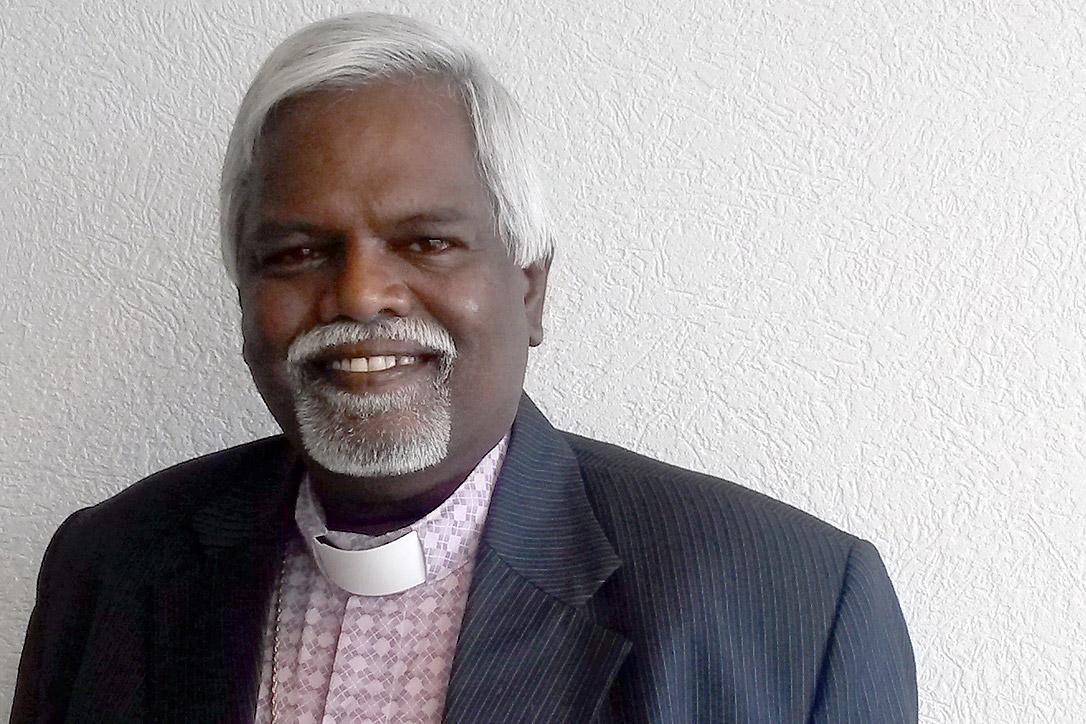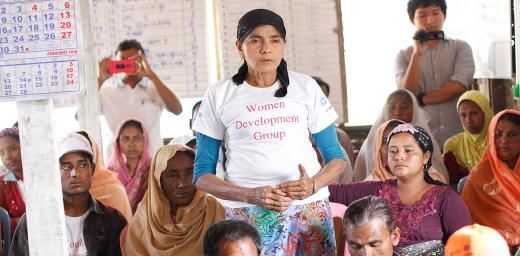Indian Churches Plan Network of Female Lawyers

Bishop Bhanu. Photo: LWF/C. Kästner
Council advisor Busi Suneel About Actions to Address Violence Against Women
(LWI) - Starting a network of female lawyers assisting victims of gender-based violence is but one of the actions taken by Lutherans in India for the implementation of the LWF gender justice policy. Bishop Prof Busi Suneel Bhanu of the Gurukul Lutheran Theological College in Kilpauk, India reports that the United Evangelical Lutheran Churches in India (UELCI) have increased their initiatives to overcome violence against women.
Triggered by public protests following the death of a student who was gang-raped in December 2012, churches engaged in the debate on the rights and protection of women. In a letter to the UELCI, which groups LWF member churches in India, LWF General Secretary Rev. Martin Junge had encouraged the churches to support civil society in the “courageous step” towards the deep transformation so that situations such as the one experienced by the young woman “are eradicated forever.”
“Civil society and the churches made an appeal to the government.” Bishop Bhanu recalls. “The courts had already come up with certain guidelines to protect women. After that case, the courts have actually enacted a law.”
Raising Awareness
Even though Christian churches in India had advocated for women’s rights for more than a decade, the student’s tragic death raised a new awareness, Bishop Bhanu explains. “In India, traditionally a woman is considered an object of pleasure; her dignity is below the dignity of a man.”
Being a dean at Gurukul Lutheran Theological College, the national seminary training future pastors, Suneel is working with the objective to introduce the LWF Gender Justice Policy “to the people in the pews”.
“It was distributed to all the church leaders and we have asked them to translate this into the regional languages,” he said. As most rural congregations would not read the English version, pastors were encouraged to use their own words and the local language when talking about women’s rights, including gender justice in sermons, formal church gatherings and local meetings.
“It has to trickle down to the masses,” Bishop Bahnu emphasized. “I’m glad that some of our pastors are quite aware of these arguments and they bring information as well as awareness and advocacy to the pews”.
“Theologize the Law”
Gender justice is not just a civil and human right, but also deeply rooted in the Bible, Bishop Bahnu points out. “Jesus was always trying to bring dignity of life to those deprived of it.”
This “theologized enactment of the law,” as Bishop Bahnu calls it, is being discussed in courses with pastors from all parts of the country.
“Once in a while we invite them back to our seminary for three days and try to discuss with them things that are happening in civil society and the responsibility of the churches.”
The main project of the seminary however is a network of female lawyers. “We thought about a national consultation bringing together women lawyers especially from Christian churches, but also selected lawyers from other faiths, highlighting the possibility of networking” Bishop Bahnu explains.
This network would have a division in all major Indian towns and provide support and legal assistance to victims of gender-based violence. The consultation is planned to take place in early 2015.
The list consists of 30 names, but the Professor expects the numbers to rise significantly once the consultation is being advertised on regional levels. “Implementing women’s rights takes a lot of time, India is a very traditional society”, Bishop Bahnu says. “But we are really looking forward to making this a reality.”





